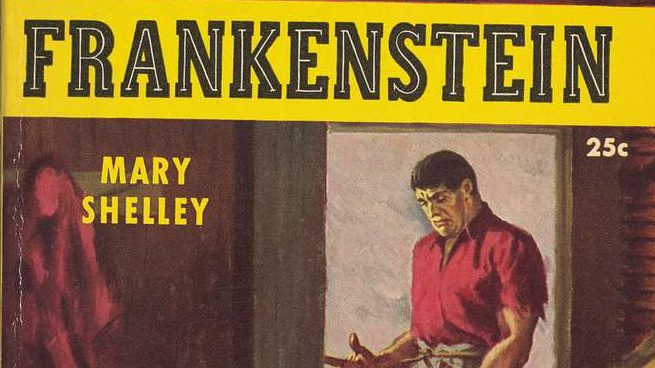By the time 5th week rolls around, I, like many of us, am struck by the melancholy of the aptly called ‘Fifth Week Blues’. With essays overdue, reading lists getting longer, and a general air of misery, I find myself struggling to tolerate each never-ending day. Alas, as a chronic romanticiser, I put my phone on ‘Do Not Disturb’ and turned to my Pinterest boards of dark academia, played Lana Del Rey’s Ultraviolence, and read Plathian poetry in an attempt to glamorise my suffering. It was in the midst of this melodramatic angst last week that I decided to reread one of my favourite books – Frankenstein.
I first read Frankenstein in my Year 10 GCSE English class. We would just about scrape through a few pages every lesson as our frail English teacher attempted to communicate the importance of an old horror novel to a group of indifferent teenagers. Personally, much of the 19th-century prose eluded me – I thought it sounded beautiful, but I just had no idea what it meant. It certainly left its mark on me though because I would continue to return to Frankenstein in the years after this first encounter, whenever I wanted to read something ‘familiar’.
Even now, as I open the book, it takes me back to sitting in that classroom with the people who, I didn’t know at the time, would be the most important people of my life. I think that’s one of the most captivating things about literature – how it takes you to different places, whether those be physical places from your memory or the imaginative spheres of your fantasies. It was a great comfort for me in the despair of 5th week to be transported home by turning over a few pages.
When Frankenstein opens, it sets the scene of an explorer who against all unassailable barriers persists to accomplish the voyage of his lifetime. The voyager, travelling to the North Pole, narrates to us the rest of the novel. He writes, “I try in vain to be persuaded that the pole is the seat of frost and desolation; it ever presents itself to my imagination as the region of beauty and delight”. It’s these words that stay with me throughout, despite the tragedy that will be woven into the story that follows (which I won’t spoil!), as it inspires a sense of fortitude against whatever may come.
Frankenstein is a story, ultimately, about what it means to be human. Throughout, Shelley brilliantly explores the dangers of scientific ambition, the responsibility that comes with creating life, and the role of society in shaping individuals. The premise of a creator who rejects his creature’s desire to be accepted challenges readers to consider the humanity of all individuals, regardless of their appearance or circumstances. The important ethical issues and imaginative storytelling are more than enough to stimulate your mind in the middle of a dreary academic workload.
Beyond the philosophical issues raised, Frankenstein is an incredibly electric and exciting book. There’s a reason it has inspired so much media in the centuries since it was published – the supernatural elements feel like magic, the horror is thrilling, and the anticipation leaves you anxious – all features that add up to a plot with ingenuity that rivals modern-day literature.
It was this ingenuity that helped me forget the deadlines and burnout of 5th week, as I escaped into Shelley’s exhilarating world, which despite all its tragedies left me feeling comforted and inspired. Much of this inspiration comes from Shelley herself – who as the daughter of Mary Wollstonecraft, ‘the mother of feminism’, carved out her own legacy as a trailblazer with the invention of the science-fiction genre through Frankenstein. Shelley’s ideas were rebellious and original, yet when she first published Frankenstein, she had to do so anonymously. Like many women of her time, she was subject to society’s attempt to suppress, discredit, and anonymise her – but still, she wrote, and did so excellently.
Her fierce writing, “beware; for I am fearless, and therefore powerful”, is beautifully defiant as well as thought-provoking to read. It’s reminiscent of something every woman knows perhaps all too well – at Oxford, feeling underrepresented has given me the need to prove myself and the feeling that I often have to fight harder to have my voice heard. But like Shelley’s persistent need to keep writing, it is a voice immune to being silenced.



